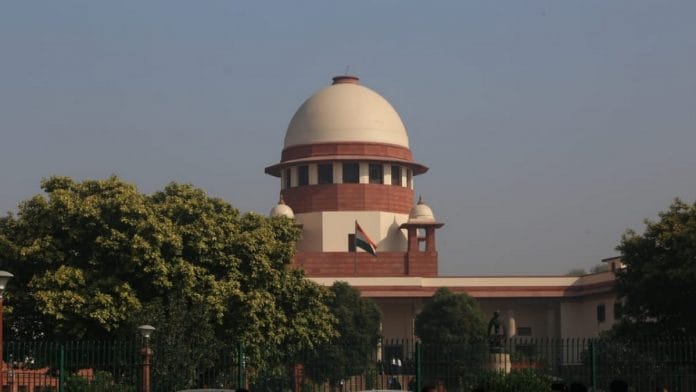New Delhi: Months after the Allahabad High Court issued a blanket ban on disc jockeys (DJs) in Uttar Pradesh, calling them a “serious threat to human health”, the Supreme Court has stayed the order.
In its 20 August order, the high court had barred the authorities from giving permissions to DJs at all. It had observed, “Under the Rules, 2000, no permission for DJ shall be granted by the authority for the reason that noise generated by DJ is unpleasant and obnoxious level.
“Even if they are operated at the minimum level of the sound it is beyond permissible limits under the Schedule of the Rules, 2000. A DJ is made up of several amplifiers and joint sound emitted by them is more than thousand dB (A),” it had said.
The court was referring to central rules to control and regulate noise pollution.
Last month, the Supreme Court was approached by several petitioners who are in the business of providing DJ services on occasions such as weddings. Seeking relief, they have submitted that their applications were not even being considered by the authorities after the high court order.
In an interim order Monday, a bench comprising Justices U.U. Lalit and Vineet Saran stayed the high court order, directing state authorities to entertain and consider DJ operators’ applications in accordance with law.
The matter will next be heard on 16 December.
Also read: Judicial independence, motive & purpose, surveillance — how SC argues for and against RTI
DJs are a ‘serious threat to human health’
In January, two petitioners told the Allahabad High Court that the district administration in Prayagraj had installed huge LCDs with amplifiers in their residential area. These amplifiers start from 4 am and continue to emit sound until midnight, they said.
The petition was filed by an 85-year-old man, who said the noise pollution was causing him health issues, and a young man in 12th standard, who submitted that he was being unable to prepare for exams.
Allowing their plea, the HC bench comprising Justices Pradeep Kumar Singh Baghel and Pankaj Bhatia then issued a slew of directions.
Citing Noise Pollution (Regulation and Control) Rules, 2000, the court noted that 1,860 loudspeakers were being used in religious places across Prayagraj, and operating without any licence under the rules.
The court called DJs a “serious threat to human health, particularly children, senior citizens and patients admitted in the hospitals”, and barred authorities from giving them approvals.
It also directed for the provision of a toll-free number for people to complain if a loudspeaker, public address system, DJ, musical instrument, sound amplifier or any other instrument made a sound beyond the permissible limits.
The authorities were ordered to ensure that the facility to make complaints should also be available through SMS, email and messaging app WhatsApp.
Noise pollution and Article 21
The Allahabad High Court had cited several judgments in its order, including one passed in 2005 in Noise Pollution (V), In re, when the Supreme Court had asserted that the right to live without noise pollution was a fundamental right protected by Article 21 of the Constitution of India.
While that case had not specifically spoken about DJs, the court had laid down certain guidelines for regulation of noise pollution.
For instance, it had directed that the “noise level at the boundary of the public place, where loudspeaker or public address system or any other noise source is being used shall not exceed 10 dB(A) above the ambient noise standards for the area or 75 dB(A) whichever is lower”.
Beating a drum or tom-tom, blowing a trumpet and playing any sound amplifier was prohibited at night, i.e. between 10 pm and 6 am, except in public emergencies.
As for a “privately owned sound system”, the court had ordered that its peripheral noise level “shall not exceed more than 5 dB(A) than the ambient air quality standard specified for the area in which it is used, at the boundary of the private place”.
Disc jockey or district judge?
Last month, the Supreme Court was approached by the Sunburn music dance festival, challenging the high court order and demanding an urgent hearing against it.
The matter came up before a bench headed by former Chief Justice of India Ranjan Gogoi, who reportedly initially construed the term DJ to mean “district judge” instead of “disc jockey”.
However, after consulting with Justice S.A. Bobde, who was also on the bench, Gogoi remarked, “It is a noise making system, rightly banned by the high court. No early hearing.”
Also read: Why Mathura or Varanasi temple disputes won’t go the Ayodhya way







Ban on dj order by Allahabad high court in August 2019 is correct legal and it’s for public safety
I thik this is serious concern allahabad court should be take hard step on this.
Why do the high court and the supreme court waste time with cases such as these? These cases should be handled at lower level of the judiciary. The judges complaint of high work load (even as they take long summer vacations) and then take up trivial cases like these.